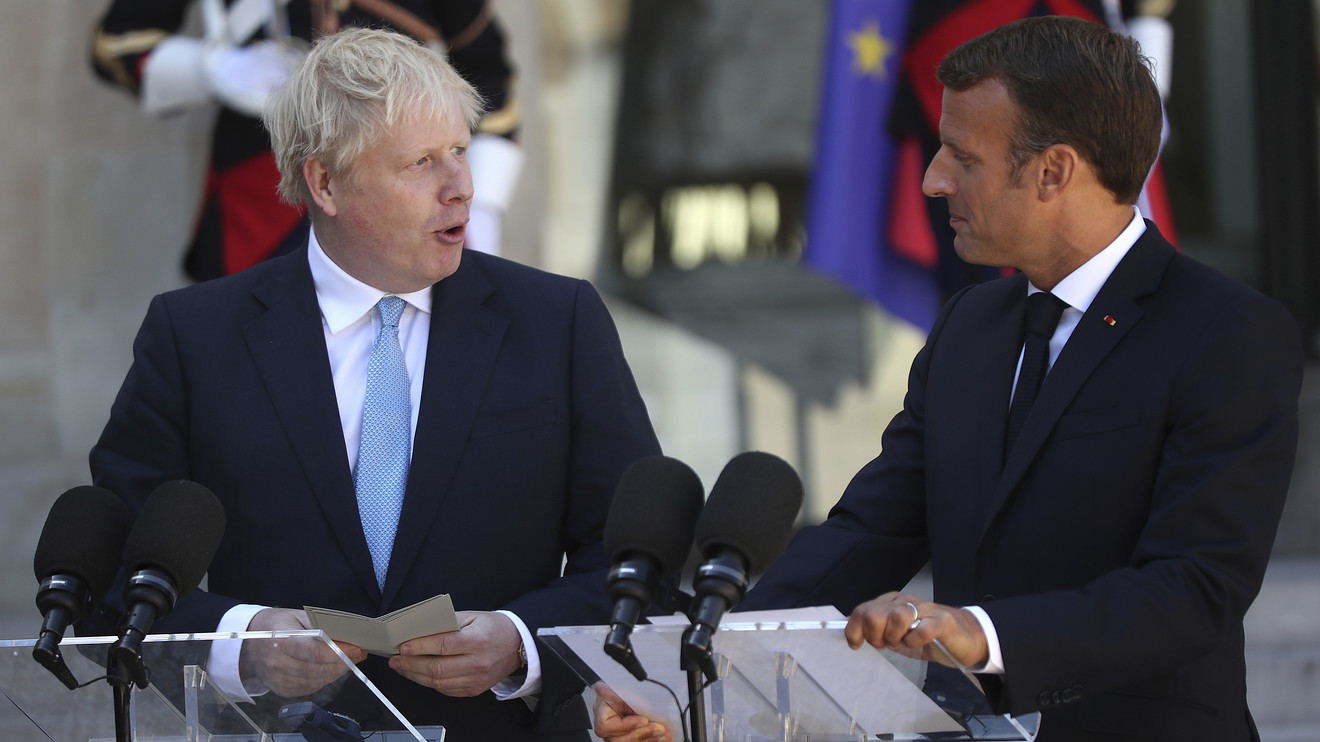
European officials haven’t lost an opportunity in recent weeks to detail the EU’s level of preparedness for a no-deal Brexit, as if they had wanted to emphasize that everything indeed is ready for what they now consider the most probable scenario.
The EU remains eager to strike an agreement. But the message of recent weeks is that it has resigned itself to the no-deal scenario. “We can’t keep extending every three months,” said the French foreign minister on Sunday, reflecting the hard line French President Emmanuel Macron has taken since March, when the first delay was granted to the U.K. government.
There are three reasons Europe remains unmoved by what’s going on in London, and is ready to take the hit of a no-deal Brexit. Unless, that is, the prospect of elections — sooner rather than later — helps Europe suffer the wait a bit longer. No EU leader wants to take the risk of being the one who gave the U.K. the final push, just as it was about to elect a government keen on signing a deal at last.
Reason No. 1: the economy, and an end to uncertainty. Trust Macron to come back swinging at the next EU council meeting mid-October, when a possible request for an extension might be discussed if U.K. Prime Minister Boris Johnson abides by the law voted by Parliament. In March, the French president argued that it would be a waste of time. Others were in favor of granting the U.K. a longer extension, of up to a year. The irony is that Macron defends the same line as the hardest Brexiteers — mainly that there is a cost to uncertainty that at some point may exceed the cost of a no-deal Brexit.
Some economies will be hit harder than others — Ireland’s, notably — but the measures implemented throughout the euro crisis allow European leaders to feel that they could withstand even a severe hit there.
Reason No. 2: Diplomacy, and an EU desire to move on. A new European Commission is taking over on Nov. 1 — the day after the Brexit deadline — and Europe has challenges of its own to focus on. The influence of euroskeptic governments and movements on the EU’s deliberations is the first challenge, just as the EU has embarked on the tough discussions over its multiyear budget. Europe also needs to come together on the many challenges it is facing: whether to boost joint defense capabilities or what policy to adopt toward Russia, for example, in addition to optimizing its positioning vis-à-vis U.S. President Donald Trump.
The economic challenges are no smaller. The European Central Bank, which should adopt a new package of easing measures this week, will also have a new president, Christine Lagarde, on Nov. 1 and will undergo a period of transition. For these and other reasons, Europeans don’t need the Brexit distraction.
Reason No. 3: Politics, and the fact that Brexit isn’t a European domestic problem. For EU leaders, there is little political capital to lose by playing hardball with London. Brexit has never been a European problem, and it never figured as a topic in the many national electoral campaigns that have taken place since the Brexit referendum in 2016. EU leaders don’t even really care about the possible blame game that would follow a hard Brexit, if they appear to have slammed the door on London.
“People just aren’t interested,” according to one EU official. “They don’t want to hear about it, they don’t want to read about it, some even think that Brexit has happened already, and in any case they will never vote with Brexit in mind.”











Add Comment